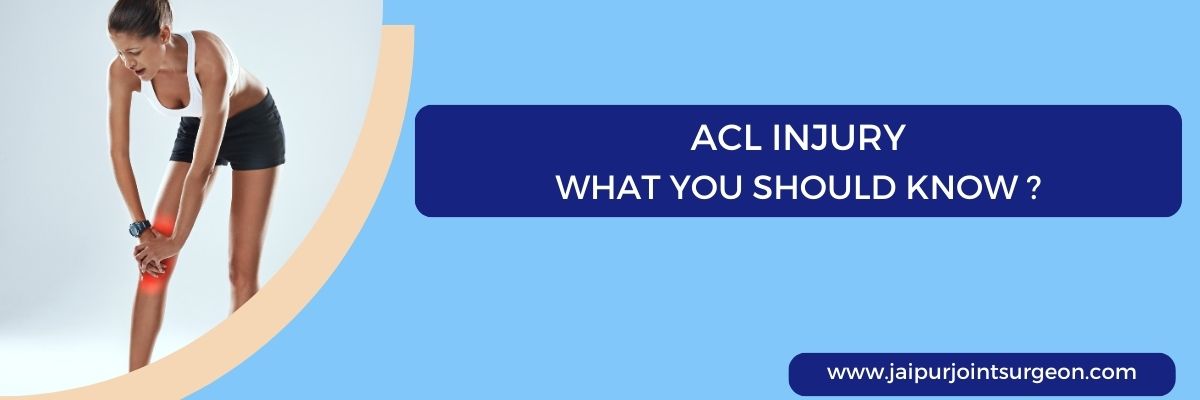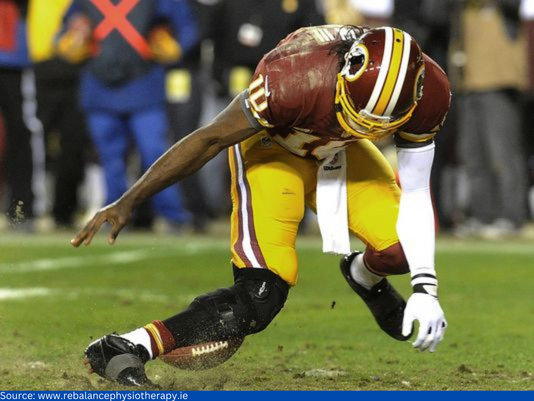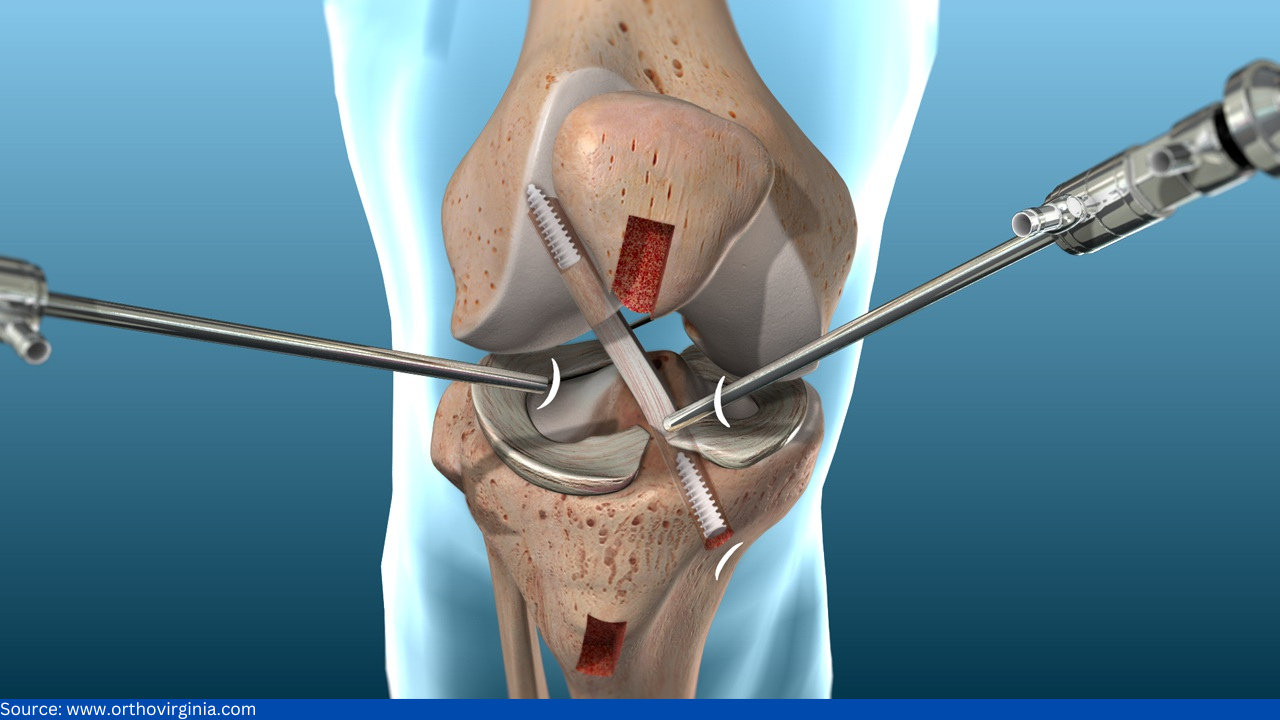ACL Injury – What You Should Know

ACL (Anterior Cruciate Ligament) injury is among the most common injuries pertaining to the knee. The ACL is a strong, fibrous band connecting the thighbone (femur) to the shinbone (tibia) and enables the stability of your knee joint. The ACL is one of the tissue bands that keep the bones in your knee together, thus keeping your knee strong and steady.
When the ACL is torn, your knee can become unstable and sore. In addition, it can be very painful and challenging to put pressure on the hurt leg.
If you suspect you have torn your ACL (Anterior Cruciate Ligament), please consult Dr. Dilip Mehta, a renowned orthopedic surgeon in Jaipur, for treatment options.
Symptoms of ACL injury
The eminent orthopedic doctor in Jaipur, Dr. Dilip Mehta, says that most of his patients remember hearing a popping or snapping sound when the injury occurred, but not everyone experiences this.
Common symptoms of an ACL injury include:
- Sudden and severe pain in the knee
- A feeling that your knee is giving out when weight is placed on it
- Swelling that occurs quickly
- Instability
- Loss of ROM (range of motion)
If you experience any symptoms similar to an ACL tear, it is important to visit a highly-skilled orthopedic surgeon for a proper assessment and treatment.
What can cause an ACL injury?
Most ACL injuries occur during athletic activities, such as basketball, football, or soccer, when the knee is suddenly twisted or extended beyond its normal range of motion. ACL injuries can also occur due to a direct blow to the knee, such as a car accident.

The most common ACL injuries are caused by:
- Stopping abruptly
- Incorrect landing during a jump
- Colliding your knee hard against something
- Changing your direction or twisting your knee
Some risk factors can potentially cause an ACL injury, such as:
- Being female, as the anatomy and muscle strength are different
- Primarily physical sports such as basketball, gymnastics, and soccer
- Wearing shoes that do not fit right
- Using incorrect movement patterns in sports
- Using sports equipment that is not maintained properly
Diagnosis of ACL injury
Your doctor will examine your knee during the physical and compare your injured and unaffected knees for swelling and discomfort. Additionally, the knee specialist may move your knee into several positions to evaluate the joint's range of motion and overall functionality.
The physical exam is usually enough to make the diagnosis, but testing may be necessary to exclude other causes and assess the degree of the injury. These tests could consist of:
X-rays:
An X-ray will help the doctor check if a bone is fractured. Soft structures like ligaments and tendons are not visible on X-rays.
MRI (Magnetic resonance imaging):
A powerful magnetic field and radio waves are used in an MRI to produce images of your body's soft and hard structures. An MRI can reveal the full degree of an ACL tear as well as indications of cartilage degradation and other knee tissue damage, such as a meniscus tear.
Ultrasound:
Ultrasound, which uses sound waves to see within the body, can be used to look for damage to the knee's ligaments, tendons, and muscles.
How is an ACL injury treated?
The severity of your damage will determine how the doctor will treat the ACL. The following are a few of the treatment options your orthopedic surgeon might suggest:
Basic first aid
If your damage is minimal, all you may need to do is apply ice to your knee, rest with your leg elevated, or compress your knee in an elastic bandage. It is also known as the RICE self-care technique – Rest, Ice, Compression, Elevate.
Medications
You might be given a prescription for over-the-counter (OTC) medications to relieve your discomfort or swelling.
Knee brace
You can wear a knee brace while playing sports or undertaking any physical activity to provide your knee with additional support.
Physical therapy
Physical therapy can help to strengthen the muscles around your knee and improve your range of motion.
ACL Surgery

Dr. Dilip Mehta, often regarded as the best orthopedic surgeon in Jaipur, advises ACL reconstruction surgery if the ACL injury is severe.
In an ACL repair, the surgeon will remove the injured ligament and replace it with a section of a tendon, which is the tissue that binds muscle to bone and functions similarly to a ligament. The replacement tissue is known as a graft.
Recovery from an ACL injury can take several months. If you have surgery, you will likely need to wear a knee brace and use crutches for a period of time. Physical therapy will be an essential part of your rehabilitation.
While some athletes may need to change their sport or activity to avoid further injury to the ACL, with advanced surgical options, most people are able to return to their previous level of sports activity, but with proper guidance and committed rehabilitation.
So it is important to consult a doctor who is well versed with surgical techniques for athletes like Dr. Dilip Mehta who customizes his treatment as per your demand and needs.
Conclusion
The knee is the largest joint in our body and is crucial for almost any activity, such as walking, running, lifting objects, cycling, etc.
Therefore, an ACL injury can significantly impact your ability to perform even the most basic activities and cause frustration, agony, and despair.
Treatment for an ACL injury typically includes rest, ice, and pain medication. In addition, physical therapy can help strengthen the knee muscles and improve the range of motion.
In some cases, surgery may be necessary to repair the ACL. An ACL reconstruction surgery involves an incision in the knee and attaching the new ACL ligament to the bones.
If you or a loved one has had an injury to the knee which makes it difficult to perform activities as before, do not take it lightly. Please speak with an accomplished orthopedic surgeon like Dr. Dilip Mehta for a safe, reliable, and effective treatment.
With over 15 years of expertise, Dr. Mehta is one of the preferred orthopedic surgeons for people seeking orthopedic treatment in Jaipur.
